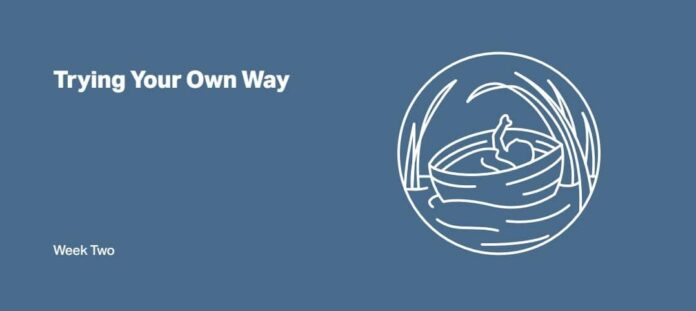The Book of Exodus | Week 02
Week’s Passage: Exodus 2
InTro
“It Seemed the Right Thing to Do”
The passage tells the story of a man named Hugo who was fatally stabbed while trying to help a woman in danger. Despite over 25 people passing by as he lay bleeding, no one helped until it was too late. This tragedy highlights how people today often observe injustice especially through social media without taking action, assuming someone else will step in.
It challenges readers to reflect on their own willingness to get involved when they see wrong being done. The passage then connects this idea to the biblical story of Moses, who also faced injustice and chose to act, though imperfectly. His story shows how God works through human choices, even flawed ones, and prepares people over time to fulfill their purpose.
inGest
God’s Irony
The passage recounts how, during Pharaoh’s cruel campaign to kill all newborn Israelite boys, a Levite couple courageously saved their son, Moses. His mother, Jochebed, placed him in a basket and set him afloat on the Nile, the very river meant to bring his death. His sister Miriam watched from the reeds and bravely intervened when Pharaoh’s daughter discovered the baby. Through her courage and quick thinking, Moses was returned to his mother to be nursed.
God’s hand was evident in preserving Moses’ life, using the actions of women that is his mother, sister, and Pharaoh’s daughter to protect and prepare him. Moses likely grew up knowing his miraculous origin, sensing he had a divine purpose. At age forty, identifying as an Israelite despite his Egyptian upbringing, he saw injustice and acted, believing it was his moment to lead and defend his people.
InTerpret
Should I Do it?
The passage explores the tension between taking action against injustice and discerning God’s will, using Moses as an example. When Moses saw an Israelite being beaten, he acted impulsively and killed the Egyptian oppressor. Though his intentions may have been to defend his people, he tried to hide his actions, indicating he knew it was wrong. When fellow Israelites rejected him and the news spread, Moses fled to Midian.
His attempt to act as a deliverer failed, but God did not abandon him. In Midian, Moses again defended the vulnerable, this time helping young women at a well showing his consistent sense of justice. The story raises questions about when Moses was acting on God’s guidance versus his own judgment. Even though Moses made mistakes, God used the events to prepare him for his greater purpose. Ultimately, the passage reminds us that discerning God’s will isn’t always easy, but God continues to work through us even when our path isn’t perfect.
inVite
Depending On Self
The passage compares the experiences of Moses and Jesus, highlighting how both faced temptations to act on their own strength rather than wait on God. Moses tried to deliver his people by killing an Egyptian, acting on impulse instead of divine direction. Similarly, Jesus faced real temptations from Satan, such as turning stones into bread or accepting worldly power in exchange for worship, shortcuts that would bypass the suffering of His mission.
Unlike Moses, Jesus chose to fully trust God’s timing and plan. Even in the Garden of Gethsemane, when He deeply desired a different path, Jesus surrendered to the Father’s will, saying, “Not as I will, but as You will.” The key lesson is that fulfilling God’s mission requires trust, patience, and surrender, not reliance on personal strength or shortcuts.
inSight
The Experience of Moses
Ellen G. White highlights that Moses’ mother, though a slave, had a powerful influence in shaping his character and mission, showing the unmatched impact of a godly mother. Though Moses was highly educated and capable, his impulsive act of killing the Egyptian revealed he was not yet ready for God’s work. God did not intend to deliver Israel by violence but by His power. Moses needed time in the wilderness to grow in humility, faith, and obedience. His trials in Midian were part of God’s plan to prepare him for leadership.
InQuire
- How did Moses’ mother shape his character? How did Pharoah’s daughter contribute to his upbringing?
- How did your parents prepare you to leave the safety of your upbringing and be challenged by ideas that are incompatible with a Christian worldview?
- In the story of Exodus 2, when was Moses’ following God’s plan, and when was he going his own way? How can you discern the difference?
- How did God overrule Moses’ mistakes and use them for good?
- Have you ever had an experience where you knew God was calling you to do something for Him? What was that like?



